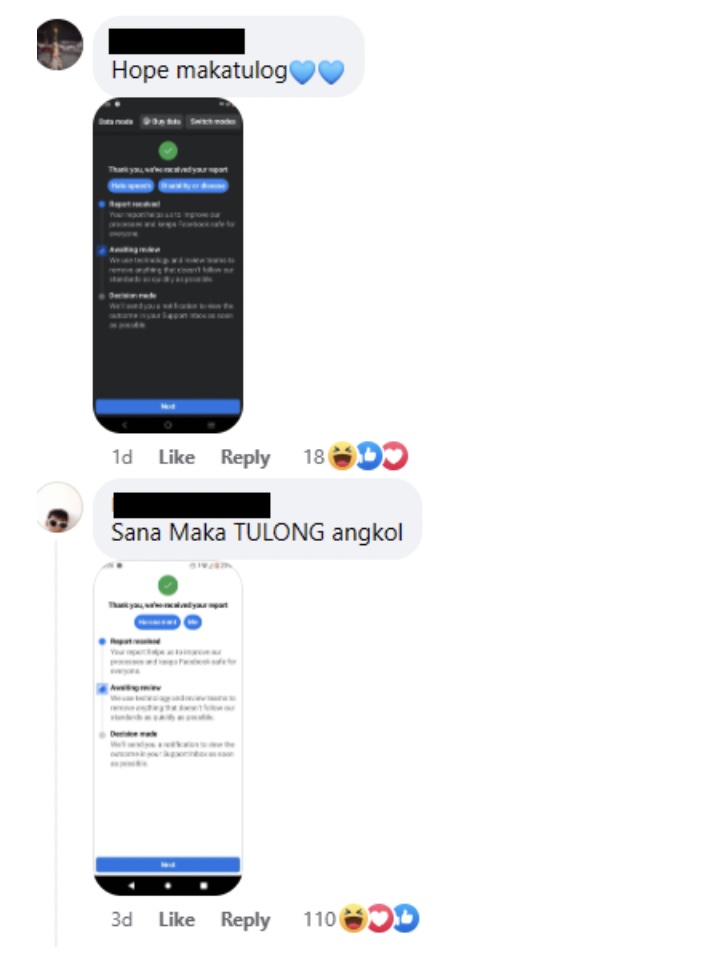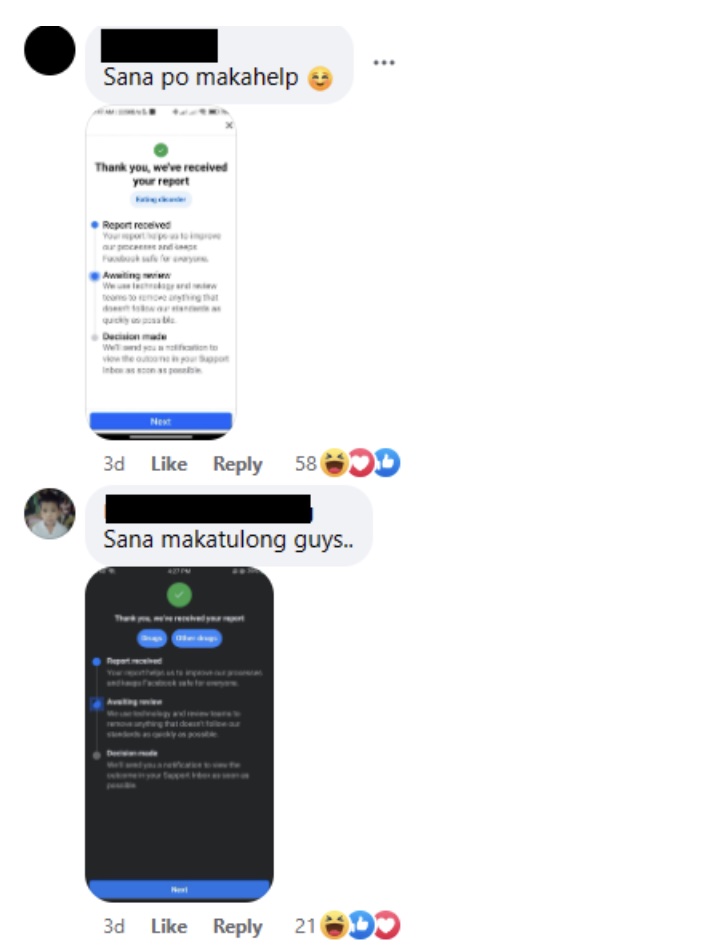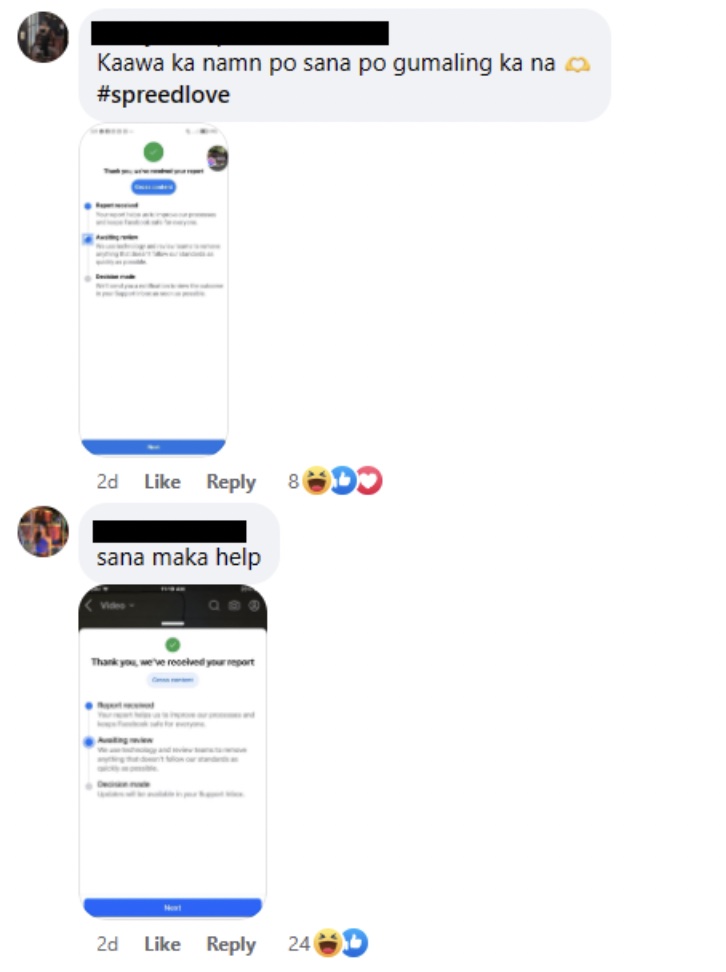It cannot be denied that we have been given too much liberty and power to post almost everything online. With nothing more than just a simple click, we can immediately share our recent travels, latest clothing purchases, career promotions, gatherings with loved ones, or even the meals we enjoy daily. Most of us feel a sense of fulfillment, or belonging, or even a quick dopamine hit, as we invite others to participate in our experiences and milestones and allow them to celebrate in our behalf, through comments and reactions.
But in some ways, this freedom afforded to us is regrettably starting to become more and more utilized in a manner that completely disregards basic standards of decency and consideration for others.
Throughout the pandemic, there was a significant surge in people turning to various social media platforms for entertainment. This highlights our increasing reliance on digital connectivity given our limited options at that time for social interaction.
In light of this, many Filipinos also ventured into content creation and ultimately made a name for themselves on the internet.
Commonly referred to as ‘content creators’ and ‘influencers,’ these individuals usually talk about their personal lives, offer opinions on various topics, and promote products to their followers.
Anyone can be an online creator these days. Even pets can become one! But while some of them use their platform responsibly to spread positivity and valuable information, others exploit it for personal gain without much regard for the consequences.
Just recently, people online were taken aback after content creator ‘Tito Mars’ uploaded a video of himself feeling disgusted while trying sardinas (canned sardines) for the ‘first time.’ In the video, he expresses his displeasure with the canned goods and even resorts to covering his nose in the hopes of improving the experience.
As expected, many were quick to criticize his insensitivity in the video, pointing out that canned goods sometimes serve as the lifeline for numerous Filipinos who rely on them to meet their daily nutritional needs. They argued that his remarks showed a lack of understanding and appreciation for the struggles of those who depend on affordable and non-perishable food items to survive.
One user expressed, “I’ll be honest, I’ve never eaten sardines too (I just don’t like fish as a personal preference) pero I’m not dumb enough to make such a tone-deaf, literally, poverty shaming video. This wreaks of apathy and just plain pompous behavior. All the crap comments you’re getting is pretty well deserved.”
Another commenter said, “Sana dumating yung araw na wala ka ng makain [I hope the day comes when you have nothing left to eat] and the only choice you have to survive is to eat sardines. Let’s see what life lesson and realization you’ll have by then. Manifesting!!”
Much to the surprise of many, in the face of ongoing criticism, the ‘content creator’ persisted in sharing videos featuring his exploration of Filipino foods often overlooked by mainstream culture and primarily consumed by marginalized individuals, citing that he is only doing it for ‘content.’
Now, it is in these moments that we cannot help but ask: To what extent are we willing to push our humanity on the side merely to attain popularity? Is garnering attention worth compromising our moral compass and empathy towards others?
While it’s clear we’re far from reaching a unified answer to these issues, there’s already a glimmer of hope online as social media users remind each other that instead of amplifying harmful content through reactions, shares, and comments, it would be best to simply block or report the source. This strategy is grounded in the understanding that by denying these creators further engagement, we mitigate their ability to profit from controversy.
More importantly, this time we make creators think deeply. Like maybe, we can have a four-way test of some sort, but for content:
Is it the truth? Is it fair to your audience? Will it build goodwill and better relationships? Will it be beneficial to all concerned?Now, how does Tito Mars’ Sardine video fare against the above questions?
This prevailing trend of ‘digitine’–a portmanteau of Digital Guillotine, a movement that started because of the 2024 Met Gala and aimed at reporting and blocking influencers who do not use their platform to contribute something good to society, or worse–consistently create nothing but malicious content, has already been observed in some of the videos by ‘Tito Mars.’
Now, to reiterate, progressing towards a comprehensive solution to these challenges remains a journey in itself, but it’s not a path we have to walk passively where we allow ourselves to fall victim to online misconduct. As members of this growing community, we will always have the power to discern, deliberate, and determine which content deserves our attention and which is better left off our timelines. After all, each interaction, each click, holds significance, not only in terms of the engagement we offer but also in the real-life implications of what we consider acceptable and for ‘content’ alone. For now, we take over this responsibility collectively, as these giant platforms where we huddle online skirt accountability over the content they present (a topic for another piece, obviously).
In conclusion: It’s probably high time to give the power of our attention to those who can use it responsibly, and remove from those who do not have anything better to contribute. /VT
Other POP! stories that you might like:
Commentary: Stealing credit for someone else’s work is totally not cool
Some Filipinos will scream ‘Filipino pride’ no matter what, even if wrong
Commentary: Why can’t we just let people enjoy things?
‘Let Them Eat Cake’ trend on Tiktok causes uproar, births ‘Digital Guillotine’ movement






